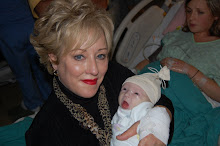Author:
James Baldwin
Title:
"Sonny's Blues"
Main Characters:
Sonny - A man who having grown up in the ghetto succomed to a life of drugs. He is released from prison where he goes to stay with his brother. Sonny has a love for music and has a dream of becoming a musician.
Sonny's brother - The story is told by this unnamed character who is the only relative left for Sonny from their immediate family. Sonny's brother is older than Sonny, and prior to Sonny and his mother's death, the brother is asked by the mother to look after Sonny and not let him become a statistic.
Sonny's father - He is not alive in the story, but, the mother mentions him and how tormented he was after witnessing his own brother hit by a car and left for dead by what he said were to be white men.
Sonny's Mother - Sonny's mother is greatly concerned about Sonny becoming involved in bad things due to the ghetto life they live. She asks her eldest son to look after Sonny and reminds him that his brother is a good person and even good people can get caught up in bad things.
Creole - Creole is a friend of Sonny's who plays bass in their jazz ensemble. Creole takes Sonny under his wing and encourages him to find himself through his music.
Summary:
Sonny is a drug addict being released from prison. His brother is picking him up at the airport and is very excited to see him. He's not sure what to expect due to the fact that he could possible relapse back into drugs once his freedom is given back to him. Sonny's brother is a school teacher in Harlem and sees students get into the drug scene every day.
Sonny proves his brother wrong by getting involved in a blues band. Sonny is eventually able to break away completely from his former life of drugs and be a productive member of society. One person in the story that is key to Sonny's success is Creole.
What do I know about the story/topic I am reading?
I have some knowledge of blues music and how it came to be, where it's roots are. I've been to NYC several times, and I've seen the ghetto and the oppression that keeps people in the cycle of drugs and violence.
What did I think about what I had read?
This main theme in this story is overcoming adversity. While Sonny did spend time in jail for becoming involved in drugs, he did manage to escape the ghetto life through his music. Sonny's return to his brother's home after prison was met with some skeptisism by his brother. Sonny's brother gave the impression that he didn't think Sonny would make it. Sonny proved him wrong and he saw this in the end.
What was my emotional response to the story?
While I thoroughly enjoyed the story, when I finished it, I was in need of some more light hearted material to read. The story is very good at depicting the opression that is evident in the streets of the ghetto. In one part, it talks about young boys coming out into the streets to find relief from their terrible home lives, only to find it even worse on the streets. Drugs are depicted as a possible, although temporary, escape from this life.
Their are rich overtones of religion, music, and references to drug usage. It becomes obvious to the reader that these are three ways in which one can find refuge from the ghetto. One can seek
God, find pleasure in music, or one can seek solace in the world of drugs.
What do I want to learn more about?
I would like to be able to find a way to end the cycle of poverty. I would like to learn about ways in which I can make a difference in someone's life, so they can avoid falling into a life of drugs, gangs, poverty, etc.
What can I imagine that is not specifically mentioned?
I've been to NYC several times, and as I was reading this story, I could hear the traffic, the honking, the zip, zip of the police sirens. I could see the crowds of people not making eye contact walking with determination to their various destinations.
Would I recommend this story to others?
I would definitely recommend this story! The story had a positive outcome, and really made me think about how individuals really feel trapped by life in the inner city ghetto and how they can possibly never see a way out.
About the author:
James Baldwin lived from 1924 - 1987. He grew up in Harlem in a very religious home. When he was 17 years old, he moved to Greenwich Village in NYC where he felt more at home among the writers and artists who lived in the area. James Baldwin was a homosexual and was disturbed about the injustices he saw against African American and homosexual people.
Subscribe to:
Post Comments (Atom)

What do you think of the Tone in this story, and also the imagery?
ReplyDelete